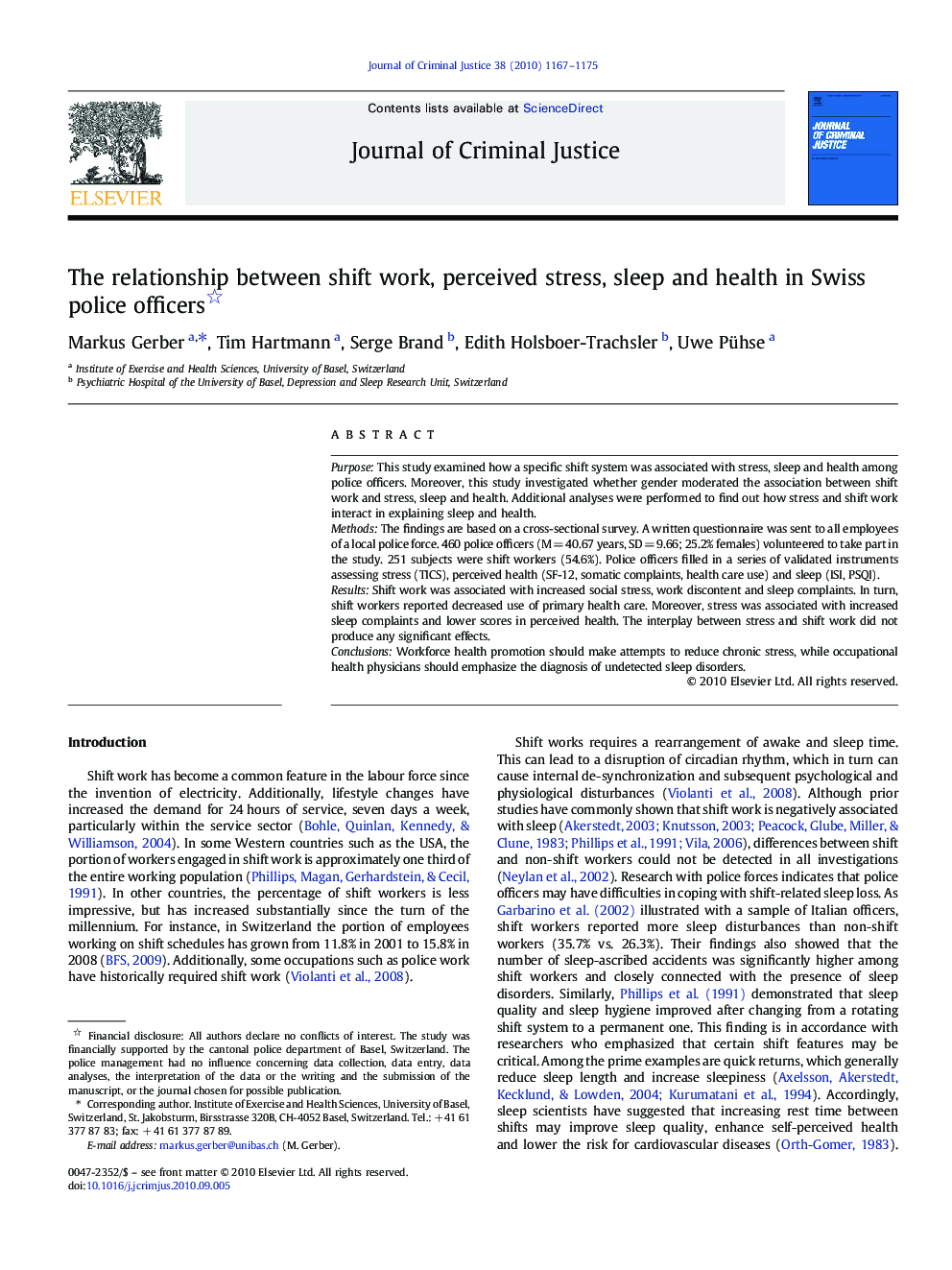| Article ID | Journal | Published Year | Pages | File Type |
|---|---|---|---|---|
| 882992 | Journal of Criminal Justice | 2010 | 9 Pages |
PurposeThis study examined how a specific shift system was associated with stress, sleep and health among police officers. Moreover, this study investigated whether gender moderated the association between shift work and stress, sleep and health. Additional analyses were performed to find out how stress and shift work interact in explaining sleep and health.MethodsThe findings are based on a cross-sectional survey. A written questionnaire was sent to all employees of a local police force. 460 police officers (M = 40.67 years, SD = 9.66; 25.2% females) volunteered to take part in the study. 251 subjects were shift workers (54.6%). Police officers filled in a series of validated instruments assessing stress (TICS), perceived health (SF-12, somatic complaints, health care use) and sleep (ISI, PSQI).ResultsShift work was associated with increased social stress, work discontent and sleep complaints. In turn, shift workers reported decreased use of primary health care. Moreover, stress was associated with increased sleep complaints and lower scores in perceived health. The interplay between stress and shift work did not produce any significant effects.ConclusionsWorkforce health promotion should make attempts to reduce chronic stress, while occupational health physicians should emphasize the diagnosis of undetected sleep disorders.
Research Highlights► Shift work is associated with social stress, work discontent and sleep complaints. ► Gender does not moderate the relationship of shift work, stress, sleep and health. ► Stress is negatively associated with perceived sleep and health. ► Shift work and stress do not interact in explaining stress, sleep and health. ► Stress prevention is an important issue in police workforce health promotion.
